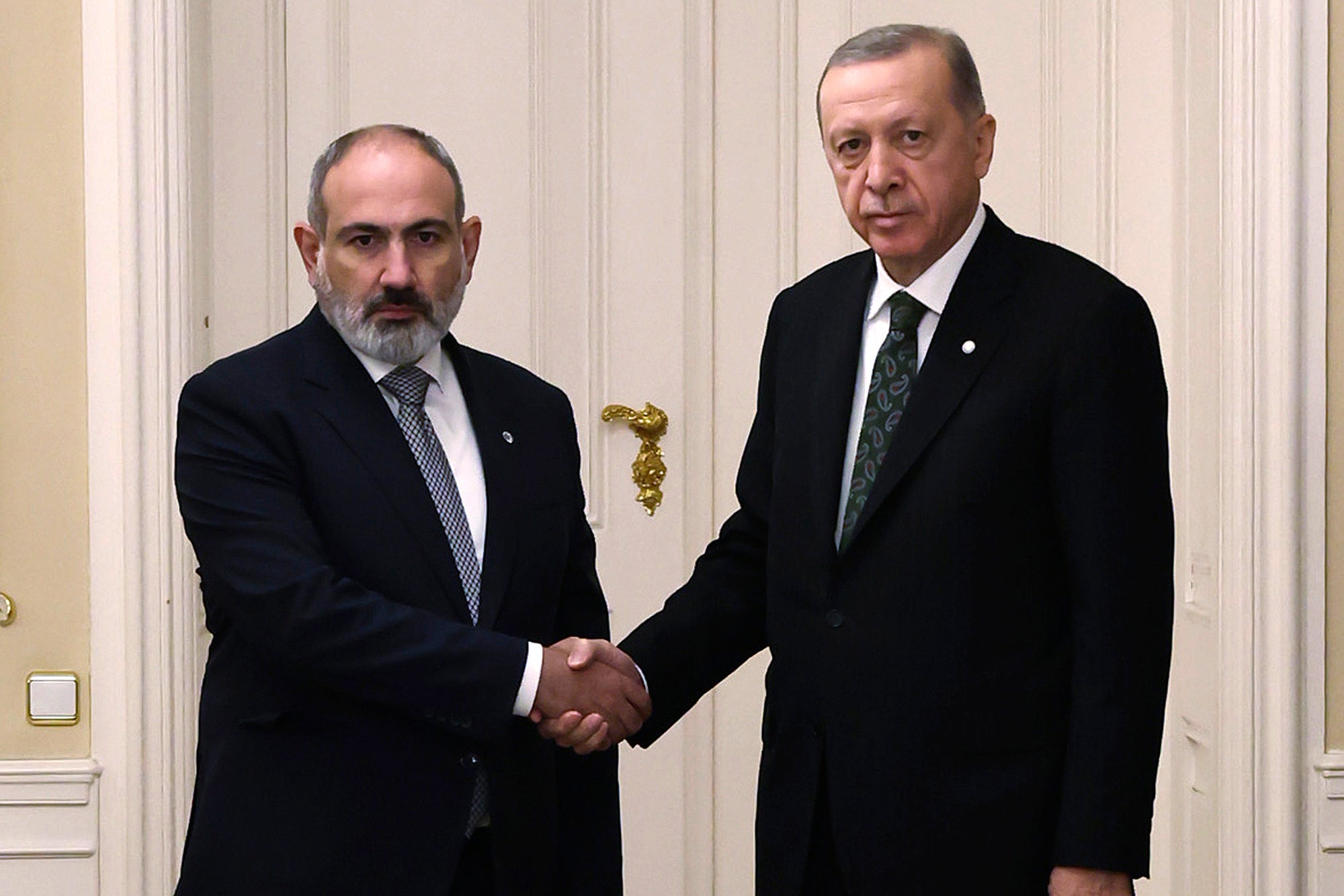Turkish and Armenian special envoys resume talks aimed at reconciliation and reopening the border
Special envoys from Turkey and Armenia have convened at the countries’ shared border to resume discussions aimed at normalizing ties between the historic foes

Special envoys from Turkey and Armenia convened at the countries’ shared border on Tuesday to resume discussions aimed at normalizing ties between the historic foes.
Turkey and Armenia have no formal relations, and their border has been closed since the 1990s. They agreed in late 2021 to improve relations and appointed special envoys to discuss ways toward reconciliation and the opening of the border.
Turkish Ambassador Serdar Kilic and his counterpart, Armenian parliament deputy speaker Ruben Rubinyan, met at the Alican-Margara border crossing, Turkey’s Foreign Ministry said. It marked their fifth meeting since the launch of reconciliation efforts.
The Turkish ministry statement said the envoys agreed to streamline visa procedures for holders of diplomatic or official passports and to evaluate the technical requirements for operating a railway border gate.
They also “reemphasized their agreement to continue the normalization process without any preconditions,” the ministry added.
Turkey shut its border with Armenia in 1993, in a show of solidarity with close ally Azerbaijan, which was locked in a conflict with Armenia over the Nagorno-Karabakh region.
In 2020, Turkey strongly backed Azerbaijan in its six-week conflict with Armenia over Nagorno-Karabakh, which ended with a Russia-brokered peace deal that saw Azerbaijan gain control of a significant part of the region. Azerbaijan used Turkish military equipment, including combat drones, in the conflict.
Turkey and Armenia also have a long and bitter relationship over the deaths of an estimated 1.5 million Armenians in massacres, deportations and forced marches that began in 1915 in Ottoman Turkey.
Historians widely view the event as genocide. Turkey vehemently rejects the label, conceding that many died in that era but insisting that the death toll is inflated and the deaths resulted from civil unrest.
HaberTurk television said the two envoys on Tuesday exchanged handshakes at the border before visiting the Turkish and Armenian sides of the frontier.
Kilic and Rubinyan met in Moscow in January 2022, followed by three meetings in Vienna that same year.
Turkish President Recep Tayyip Erdogan and Armenian Prime Minister Nikol Pashinyan held their first face-to-face meeting in 2022 on the sidelines of a European Political Community meeting in Prague.
Last year, Pashinyan traveled to Ankara to attend Erdogan’s inauguration following an election victory.
This is Ankara and Yerevan’s second attempt at reconciliation. Turkey and Armenia reached an agreement in 2009 to establish formal relations and open their border, but the agreement was never ratified.
The border gate was briefly opened in 2023 to allow in aid after a devastating earthquake hit parts of southern Turkey and northern Syria.
Bookmark popover
Removed from bookmarks